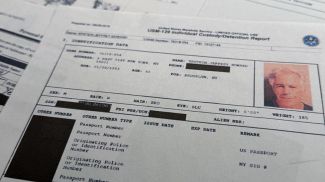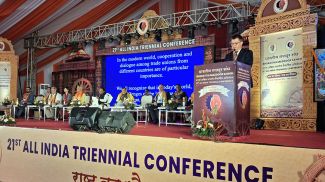MINSK, 1 July (BelTA) - The database of partisans and underground movement members who fought in the territory of Belarus during the Great Patriotic War and the website “Partisans of Belarus” were launched in Minsk on 1 July, BelTA has learned.
The multimedia multifunctional website “Partisans of Belarus” was designed and developed by the Belarus Segodnya Publishing House in cooperation with the National Archives of the Republic of Belarus.
By visiting the website partizany.by every user will be able to find information concerning his or her family, relatives, and loved ones. The website contains archival documents - personal data sheets of Belarusian partisans - heroes of the Soviet Union, biographies of legendary brigade commanders, scholarly and journalistic articles about the history of the partisan movement. As the website is filled with more content, the structure of partisan formations, large-scale partisan anti-fascist struggle in each region of Belarus is seen more clearly.
A high-precision planetary scanner was acquired to quickly digitize the partisan documents in high resolution. At the time of the launch the website contained more than 70,000 scanned award sheets and lists of awardees and more than 35,000 interactive cards of partisans. Work on scanning and processing continues.
Every website visitor can take advantage of the smart search form that takes into account different spellings of names and surnames. Advanced search will help find a relative even on small bits of information (by year and place of birth, awards and participation in partisan formations. The interactive card of a partisan includes personal data (name, date and place of birth), partisan unit and brigade, awards, scanned documents - personal data sheets, award sheets, award nominee recommendations and other materials.
“The Belarus Segodnya Publishing House has initiated this project and we are very grateful to the National Archives for great cooperation. The project has two sides. It is very important for the archives to digitize this vast array of unique documents. For us it is very important that these documents should be made available to a wide audience so that everyone could visit the website and access these documents, see how our relatives fought in partisan units,” Editor-in-Chief of the Belarus Segodnya Publishing House Dmitry Zhuk said.
He noted that much work is still ahead. “They have digitized award sheets in Russia. In Belarus we were lagging behind on this front. It was our duty to create such a database. To date, and this is just the beginning of the path, we have uploaded over 35,000 award sheets. This is already a lot. This is almost a third of what we have in terms of award sheets. There are also cards of partisans and underground fighters. All in all, these are about 350,000-400,000 people that we must tell about. Firstly, I hope that this database will be interesting. Secondly, there is no substitute for emotions that you experience when reading about your grandfather. They generally did not like to talk about the war. I think it is important for every Belarusian family, including for mine,” Dmitry Zhuk stressed.
According to Director of the National Archives Andrei Demyanyuk, the website will be updated regularly. “Originally the website is built on the documents of the National Archives. In the future, perhaps, the website will make use of other sources, because there are a lot of materials in Belarus on the history of the partisan movement: museums, libraries. The website will give access to those documents. We plan to digitize around 480,000 documents and make them widely available,” he said.
Andrei Demyanyuk added that interest in the topic is great. Every year the National Archives receives several hundred inquiries on the subject of the partisan movement. “We expect that many of our users will be people of senior age. We have made the interface convenient and easy to use. Our society really needs this multi-faceted project,” he added.













